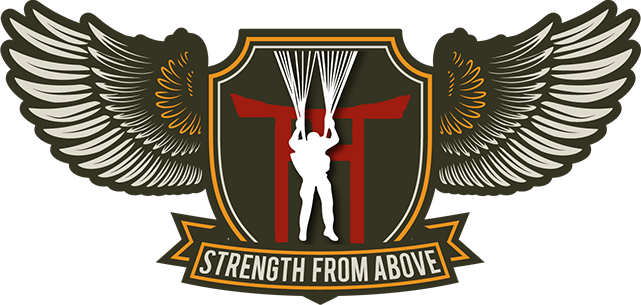T/5 Serling, Rodman "Rod"
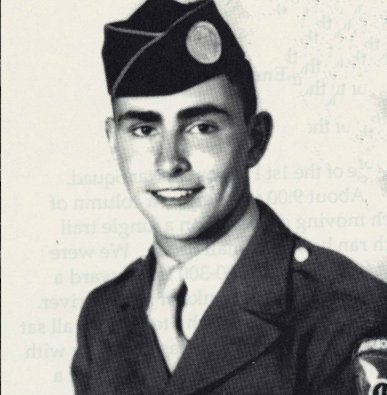
Demolitions, Regimental Headquarters Company, 511th PIR
December 25, 1924 - June 28, 1975 (Age 50) - gravesite
Citations: Purple Heart, World War II Victory Medal, Combat Infantryman Badge, Philippine Presidential Unit Citation Badge, Philippine Liberation Medal with service star, the American Defense Medal, and the Asiatic-Pacific Campaign Medal with three Battle Stars and one Arrowhead
Unit Nickname: "Rod"
About Rod:
Rod Sterling was one of the best known and most honored writers in television history, writing 252 scripts during his career. He was born Rodman Edward Serling on December 25, 1924, in Syracuse, N.Y. and while growing up Rod enjoyed listening to science fiction and drama performances on the radio. He attended school in Binghamton, N.Y. where he helped his father run a grocery store before enlisting in the Army paratroopers on the day of his graduation in 1942.
While Rod enlisted with the goal of fighting the Nazis in Europe as a tail gunner in a B-17 "Flying Fortress", Rod was sent to Camp Toccoa, Georgia to join the 511th Parachute Infantry Regiment, 11th Airborne Division where he served for three years, including two years in the Pacific where "The Angels" saw heavy combat on Leyte and Luzon. Rod volunteered for the parachutes with friends “Gentleman Jaques” B. Smith and John J. Mahoney. Smith and Mahoney were assigned to Easy Company while Serling, who at 5' 4" did not meet the height requirement but talked his way into the parachutes anyway, was assigned to Regimental HQ.
Years later, Rod said of the paratroops, "If you didn’t jump (of the plane) in time, you’d be five miles beyond where you were supposed to go with the comparative comfort of your own colleagues; so, it behooved you to get out that door as fast as you could."
Before the 511th PIR saw action in the South Pacific, however, Serling was sent to the demolition team, or “Suicide Squad” as they were known. According to RHQ’s resident “Ernie Pyle” artist Sgt. Frank Lewis, Serling was transferred because “Rod screwed up somewhere…he got on someone’s nerves.”
Rumor has it Serling told a regimental officer exactly what he could do with an assigned task.
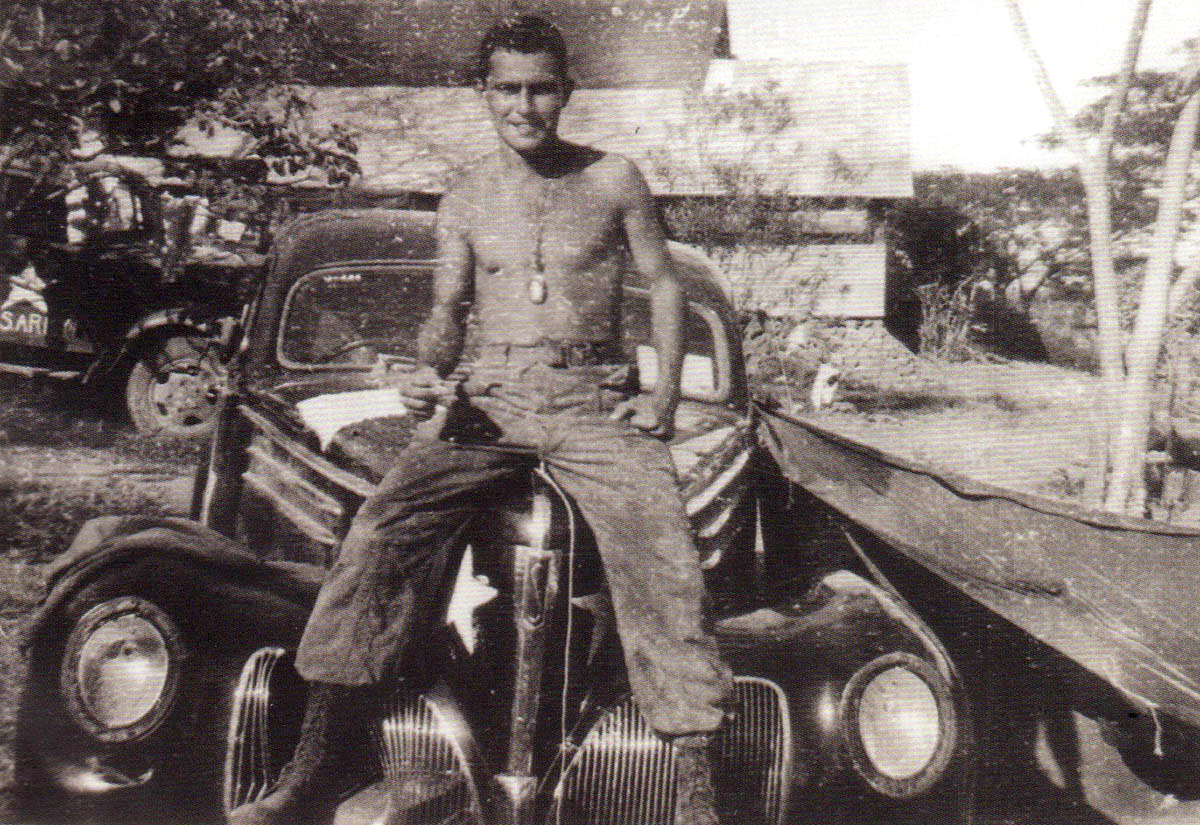 While the 11th Airborne Division was on New Guinea, Rod was involved with the division's extensive boxing program where he fought in 17 bouts (and had his nose broken twice). Also on New Guinea, Jack Benny's USO show came to perform for the Angels and Rod was given an opportunity to write and perform in a short skit with the show that was aired on Armed Forces Radio. It was a sign of things to come for the future television star.
While the 11th Airborne Division was on New Guinea, Rod was involved with the division's extensive boxing program where he fought in 17 bouts (and had his nose broken twice). Also on New Guinea, Jack Benny's USO show came to perform for the Angels and Rod was given an opportunity to write and perform in a short skit with the show that was aired on Armed Forces Radio. It was a sign of things to come for the future television star.
While the regiment was starving in the mountains of Leyte in late 1944, Rod's good friend Pvt. Melvin B. Levy jumped to his feet when he heard a resupply plane coming their way. Levy exuberantly yelling, “Chow call!” The famished men of RHQ-511 laughed as the Kings County, NY native listed off the food items he believed would soon float their way. Cheers erupted as red and green parachutes started dropping from treetop level, but the excitement turned to alarm when some boxes and crates came in much faster than others. The L-5s had made another pass and this time their crewmen pushed out parachute-less fifty-pound boxes of K-Rations which crashed to the earth, sending troopers diving into their foxholes.
Oblivious to the danger, Pvt. Levy continued his joyous tirade. “It’s raining chow, boys!” Shockingly, one of the large boxes landed squarely on Melvin’s shoulders, decapitating him instantly as his good friend T/4 “Rod” Serling looked on. Levy’s death was difficult for the men who could accept a combat-related loss, yet one due to a falling rations box….
Rod marked Melvin’s grave with a Star of David in honor of his friend’s Jewish heritage and a subdued RHQ quietly took to gathering supplies.
Also while on Leyte, Rod was injured in his wrist and his knee, the latter injury would plague him for the rest of his life. After Leyte, Rod jumped with the regiment onto Tagaytay Ridge just south of Manila on February 3, 1945. Rod and the demolitions men then spent weeks clearing enemy pillboxes and defensive positions, including clearing Rizal Stadium where Rod vividly remembers shooting an enemy soldier near Third Base. On another occasion, Rod found himself staring down the barrel of a Japanese rifle when another paratrooper shot the enemy soldier just in time, saving Rod's life.
When the Angels were watching a small victory celebration in Manila, the enemy began shelling the area and Rod, noticing a wounded woman out in the open, rushed forward to carry her to safety. His sergeant, Frank Lewis, put him in for the Bronze Star. Despite his respect for Serling, SGT Lewis noted that Rod just was not built for war, saying "he didn't have the wits or aggressiveness required for combat."
After Luzon, the 511th PIR was the first complete unit to land on Japan for the surrender and occupation, Rod was sent home in January of 1946 with a Purple Heart and emotional battle scars that would haunt him for the rest of his days. Many feel that these memories and traumas led to the darker tones of some of Rod's later works. To further compound matters, after he returned home from the Pacific, Rod's father passed away from a heart attack.
His daughter, Ann, noted, "What I vividly recall is my dad having nightmares, and in the morning I would ask him what happened, and he would say he dreamed the Japanese were coming at him. So it was always present, and clearly . . . he got it off his chest in his writing."
It was a sentiment that Rod shared himself. The "Angry Young Man" of Hollywood said, "I was bitter about everything and at loose ends when I got out of the service. I think I turned to writing to get it off my chest."
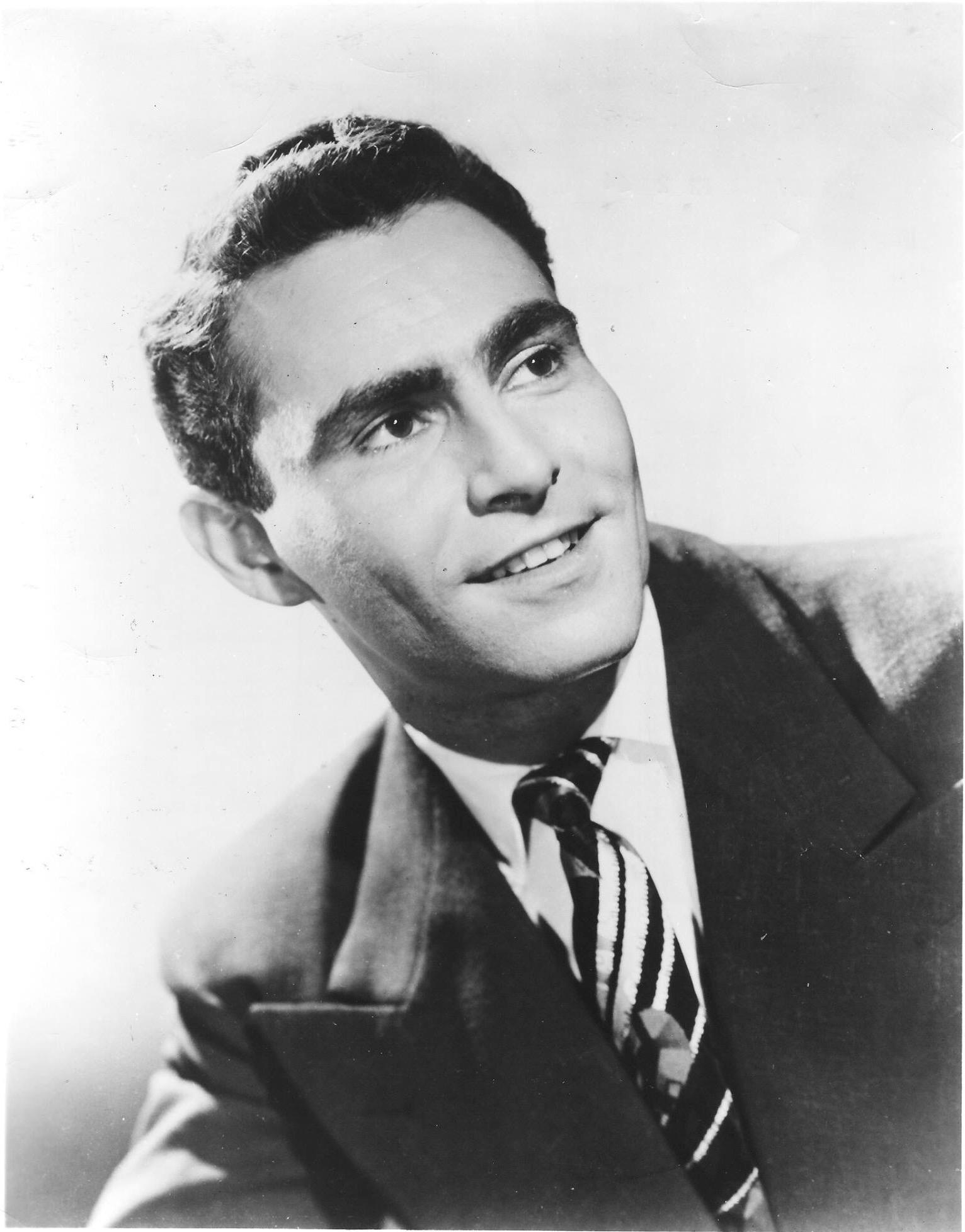 Rod used the G.I. Bill to attend Antioch College in Yellow Springs, Ohio, where he majored in English literature and drama. While at school, Rod tested experimental parachutes for the Army for $50 (or more) a jump. He even earned $1,000 testing a new ejection seat that had killed the three previous testers!
Rod used the G.I. Bill to attend Antioch College in Yellow Springs, Ohio, where he majored in English literature and drama. While at school, Rod tested experimental parachutes for the Army for $50 (or more) a jump. He even earned $1,000 testing a new ejection seat that had killed the three previous testers!
Rod also took jobs at local radio stations under a work‐study program and began turning out scripts. After graduation, Rod went to New York in 1948 as a mostly self-taught, fledgling radio writer. He won second prize in the annual script competition for the Dr. Christian radio series and by the time Rod graduated from Antioch in 1950 he had sold scripts for both radio and TV.
After college, Serling got a job with a Cincinnati TV station where he earned $60 a week as a continuity writer and produced scripts for locally shown dramas. He quit that job after a time to turn freelance. His plays such as “Patterns” and “Requiem for a Heavyweight” were prestigious highlights of television’s Golden Age of drama in the 1950s and were later made into motion pictures.
Then, on October 2, 1959, Rod's most famous work came to life: The Twilight Zone, which Serling would host, narrate and usually write. The famous CBS series would go on to air for five seasons and bring Serling three Emmy Awards.
Over the course of his career, Rod would receive three additional Emmy awards for a total of six, more than any other writer to date (as of 2020). He received the Peabody and Sylvania awards also and in addition to his famous Twilight Zone and Night Gallery programs, Serling was known for frequent appearances as host or narrator on such specials as the Jacques Cousteau series. And while he also appeared in many TV commercials, Rod constantly chided television for not living up to its potential as a dramatic and cultural medium and for its censorship. He was the first writer to be president of the National Academy of Television Arts and Sciences.
Rod also did some screenwriting for “The Man,” a 1972 film based on the Irving Wallace novel, and was co‐author of the iconic “Planet of the Apes,” which came out in 1968.
Serling was, according to close associates and friends, an insomniac who got some of his best ideas while lying awake at night. He also smoked three to four packs of cigarettes a day and, despite the famous photo saying otherwise, seldom touched a typewriter, preferring instead to dictate his scripts.
He lived in Interlaken, N.Y., while serving as a visiting professor at Ithaca College, a position he greatly enjoyed as he moved away from television apart from the occasional narration.
Rod married the former Carolyn Kramer in 1948 and they had two daughters, Jody and Nan.
In May of 1975, when he was 50 years old, Serling had a heart attack while running on a treadmill and was hospitalized in Ithaca, New York for two weeks. A couple of weeks later, on June 6 he had a second heart attack, at his cottage on Cayuga Lake, and was sent to Strong Memorial Hospital in Rochester, New York for open-heart surgery. Despite undergoing 10 hours of surgery, on Thursday, June 28, 1975, Rod Serling experienced another heart attack and died at the hospital.
Rod was survived by his widow Carolyn, two daughters, Anne and Jodi, and his older brother Robert J. Serling of Potomac, Md., author of “The President's Plane Is Missing."
If you would like to learn more about Rod's exploits within and the history of the 511th Parachute Infantry Regiment in World War II, please consider purchasing a copy of the book WHEN ANGEL'S FALL: FROM TOCCOA TO TOKYO, THE 511TH PARACHUTE INFANTRY REGIMENT IN WORLD WAR II, available in the regimental online store, on Amazon or wherever military history books are sold.
NEW GUINEA NIGHTMARE
 By Rod Serling, written while Rod was serving in the 511th PIR, 11th Airborne
By Rod Serling, written while Rod was serving in the 511th PIR, 11th Airborne
Down here there are no Ten Commandments
And a man can raise a thirst;
Here live the outcasts of Civilization,
Life’s Victims at their worst.
Down the steaming Guinea coast
Live the men that God forgot,
Battling the ever present fever,
The itch and the tropical rot.
Living with the natives,
Down in the sweltering zone,
Rooting like hogs in a wallow,
Ten thousand miles from home.
Nobody knows we’re living,
Nobody gives a damn;
Back home we’re soon forgotten—
We soldiers of Uncle Sam.
Drenched with sweat in the evenings
We stew in foxholes and dream,
Killing ourselves with alkie
To dam up memory’s stream.
At night we lie on our pillows
With ills no doctor can cure.
Hell no, we’re not convicts,
Just soldiers on a tour.
We have but one consolation,
And that to you I shall tell,
When we die we’ll all go to heaven,
Because we’ve done our hitch in hell.
LC Performance. Interview. Conversation With Rod Serling
To learn more about the 11th Airborne Division in World War II, please consider purchasing a copy of our books on the Angels:
1. WHEN ANGELS FALL: FROM TOCCOA TO TOKYO, THE 511TH PARACHUTE INFANTRY REGIMENT IN WORLD WAR II, available in the regimental online store, on Amazon or wherever military history books are sold.
2. DOWN FROM HEAVEN: THE HISTORY OF THE 11TH AIRBORNE DIVISION IN WORLD WAR II - VOL 1. CAMP TOCCOA THROUGH LEYTE CAMPAIGN, available in the regimental online store, on Amazon or wherever military history books are sold.
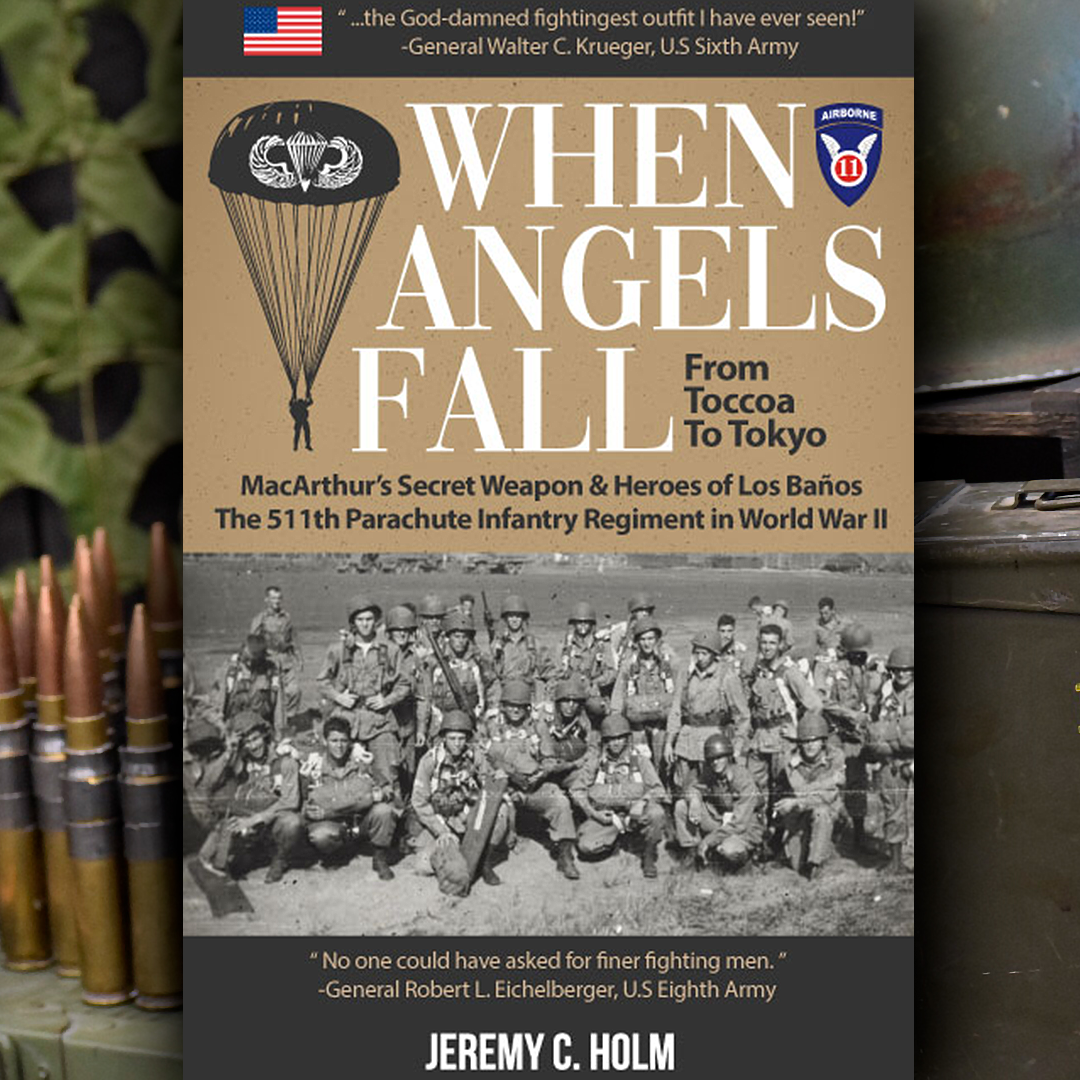 |
 |
